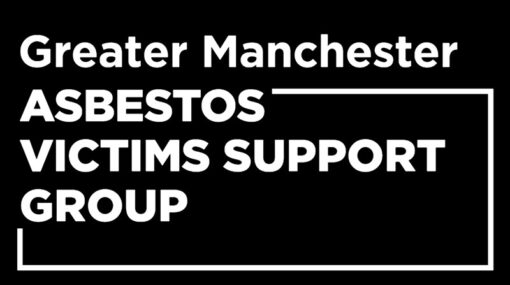Hugh James is here to put things right when you or a loved one have suffered from neglectful medical treatment. You expect a basic level of care when you attend a medical practice in the UK but when that’s breached, it can have huge impacts on your health and finances.
Understanding the different types of medical negligence may be confusing for those that haven’t experienced it before. That’s why we’ve put together a comprehensive guide on examples of medical negligence and how we can support you with a claim. We’re always here to help, so get in touch with us today to find out more or discuss a potential claim with our legal experts.
In this section of our medical negligence guide, we’ll discuss:
What is medical negligence?
According to the Health and Social Act of 2008, all medical professionals have a duty of care to patients and must ensure healthcare meets the highest standards. Failure to do this may be classed as medical negligence and can make the road to recovery even longer for patients.
Medical negligence can occur at most stages of care including diagnosis, treatment, surgery and aftercare as these are all key parts of a patient recovering from their injury or illness. If you’ve experienced negligent medical care, then you could be owed compensation.
What are some examples of medical negligence?
Mistakes made when a medical professional is diagnosing a patient can impact recovery and lead to improper treatment or medication, which could worsen the issue.
An incorrect, missed or untimely diagnosis can cause delays in getting the right treatment, which we understand can be extremely frustrating. Common conditions that are misdiagnosed include cancer or diabetes as the symptoms can be difficult to detect.
Common surgical errors that can happen include:
- Incorrect surgery
- Foreign objects left in the body
- Infection caused by poor hygiene
- Forgot to inform patients of the risks involved
- Incorrect anaesthetic amount
The incorrect administration of anaesthetic is another form of medical negligence. It can lead to several issues including a patient experiencing pain or waking up mid-surgery. Both of these issues can be stressful and cause long-term issues that may need further treatment.
Mistakes can be made with a prescription and a patient may be given the wrong medication or incorrect dosage.
For example, if a patient’s been given a medicine that they’re allergic to, then it could have serious consequences. Medical professionals should take care to prescribe the right medication or could be liable for medical negligence.
Patients rely on the medical professional to support them and provide the right level of care for a smooth delivery. Errors by doctors and midwives can still happen, unfortunately, which is an example of medical negligence.
If the mother or baby (or both) has been injured during childbirth, medical negligence may have occurred if the following has happened:
- Stillbirths
- Broken bones
- Lack of oxygen
Dental
Medical negligence also extends to dental treatment. Incorrect practice can cause pain and trauma whether it was done by mistake or as an oversight.
Some examples of dental negligence include:
- Delayed or incorrect diagnosis
- Nerve damage
- Loss or damage of teeth
It’s worth noting that this list is by no means exhaustive as medical negligence can come in many forms. If you think you may have suffered from medical negligence but aren’t sure, then please contact us. Our experts will be able to provide advice on whether you have a case.
How do you prove medical negligence?
It can be hard to prove medical negligence in some cases. This is because victims of medical negligence must be able to satisfy the following legal tests:
Prove that the medical professional or establishment had a duty of care to you
Prove that the duty of care has been breached
Prove that this breach has directly caused harm to you
Although each case is unique, the types of evidence needed to prove medical negligence remain the same. To support your claim, you’ll need the following:
Medical records
Your medical records will be helpful in assessing the level of care you received and whether this care caused or contributed to any injury that you’ve suffered. The lawyers here at Hugh James can source this information so that we can begin assessing it as soon as possible.
Following review of the medical records, should we consider that your injuries may be linked to medical negligence, then we will have your records assessed by an independent medical expert, who will be asked whether the 3 legal tests above are fulfilled and to provide the necessary evidence for your claim. Should this expert be supportive, we may arrange for you to be examined by them and a further report provided. This will include the extent of the injuries and how they have impacted and will continue to impact your everyday life.
A detailed statement from you
A detailed statement can help to determine when and in what way the medical negligence occurred in your opinion as well as set out the impact it has had on your daily life. In your statement, we will ask you to recall each stage of the treatment and inform us when you consider the negligence occurred. This may be across several stages depending on the type and level of negligence you’ve suffered.
We will then ask you to talk about the impact it has had on your life. This can involve both physical barriers, like getting to your place of work, or mental barriers such as depression and anxiety. This will show us to what extent the medical negligence has impacted you, which will be useful when we come to consider the value of your claim.
Other witness statements
Taking statements from friends and family members can also assist, both to support your allegations of medical negligence and your claims as to how the negligence has affected your daily life . These statements will provide added insight into how you were before and after your injury, which may go a long way in supporting your claim.
Photographs
If the medical negligence has caused a physical injury, then it is helpful to have photographs that support your statement and claim. These could be before and after pictures, to show how the medical treatment has impacted your body.
We understand that medical negligence injuries aren’t always visible on the surface, so don’t worry if you can’t provide any picture evidence.
Expert evidence
We will need to instruct an expert in the same field as the clinician or clinicians who treated you to review your medical records and the other evidence listed above and reach his or her independent view on whether the treatment you received was negligent.
If that expert is able to identify negligence in the course of your treatment, we will need to go on and instruct other experts to provide reports on the extent and severity of damage the negligence has caused.
How can I make a medical negligence claim?
We know that claiming for medical negligence can be confusing, which is why we’re here to support you every step of the way. We’ve made the process as simple as possible to help you get started. So, contact us if you think you’ve received negligent care from a healthcare provider or professional.
The first stage is an initial, no-obligation consultation to discuss your case with one of our experts. We’ll take great care to listen to your experience and let you know if we believe you have grounds to claim. You’ll then be able to instruct us to bring forward your case if you wish.
Our next step is to begin collecting evidence. Your solicitor will also begin assessing it to understand the severity of your claim and confirm the likelihood of your case winning. This may also involve your injuries being reviewed by an independent medical professional.
The costs incurred as a result of your injury will also be collected at this stage so that we can figure out an accurate settlement figure for your claim. This could be for the cost of rehabilitation, restorative treatments or home adaptations. If you have receipts of these transactions, that will be extremely helpful for your solicitor.
Our expert solicitors will always try to resolve your case outside of court and that usually does happen. According to data collected by NHS Resolution, 77% of medical negligence claims were resolved before reaching a courtroom. If your case does go to court, we’ll be by your side to help you feel as prepared as possible.








